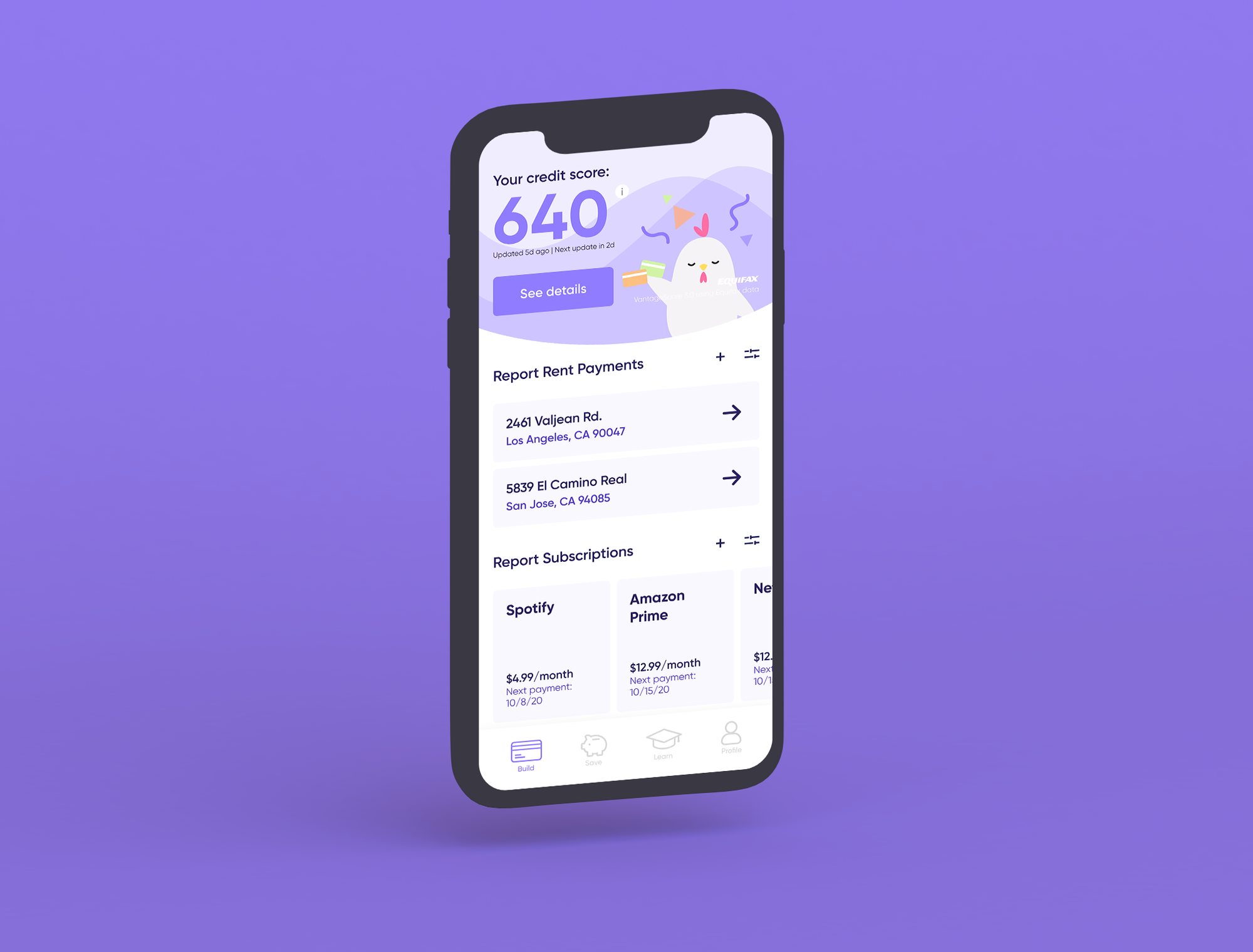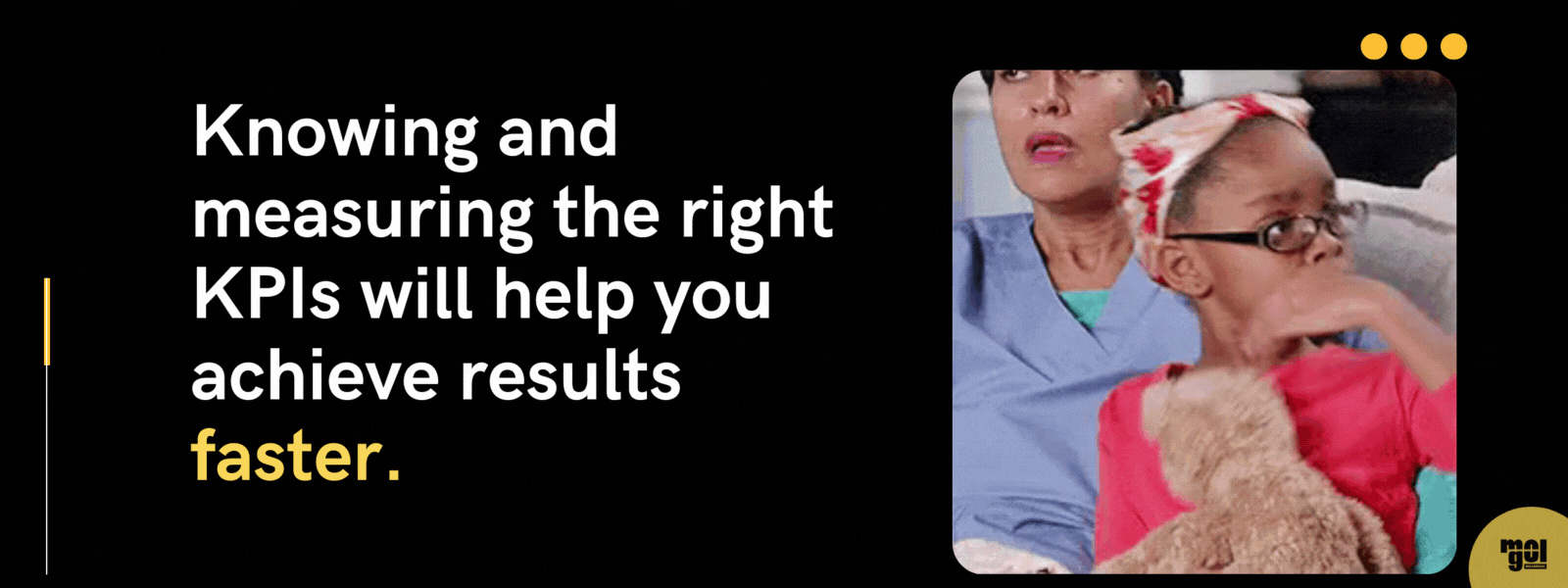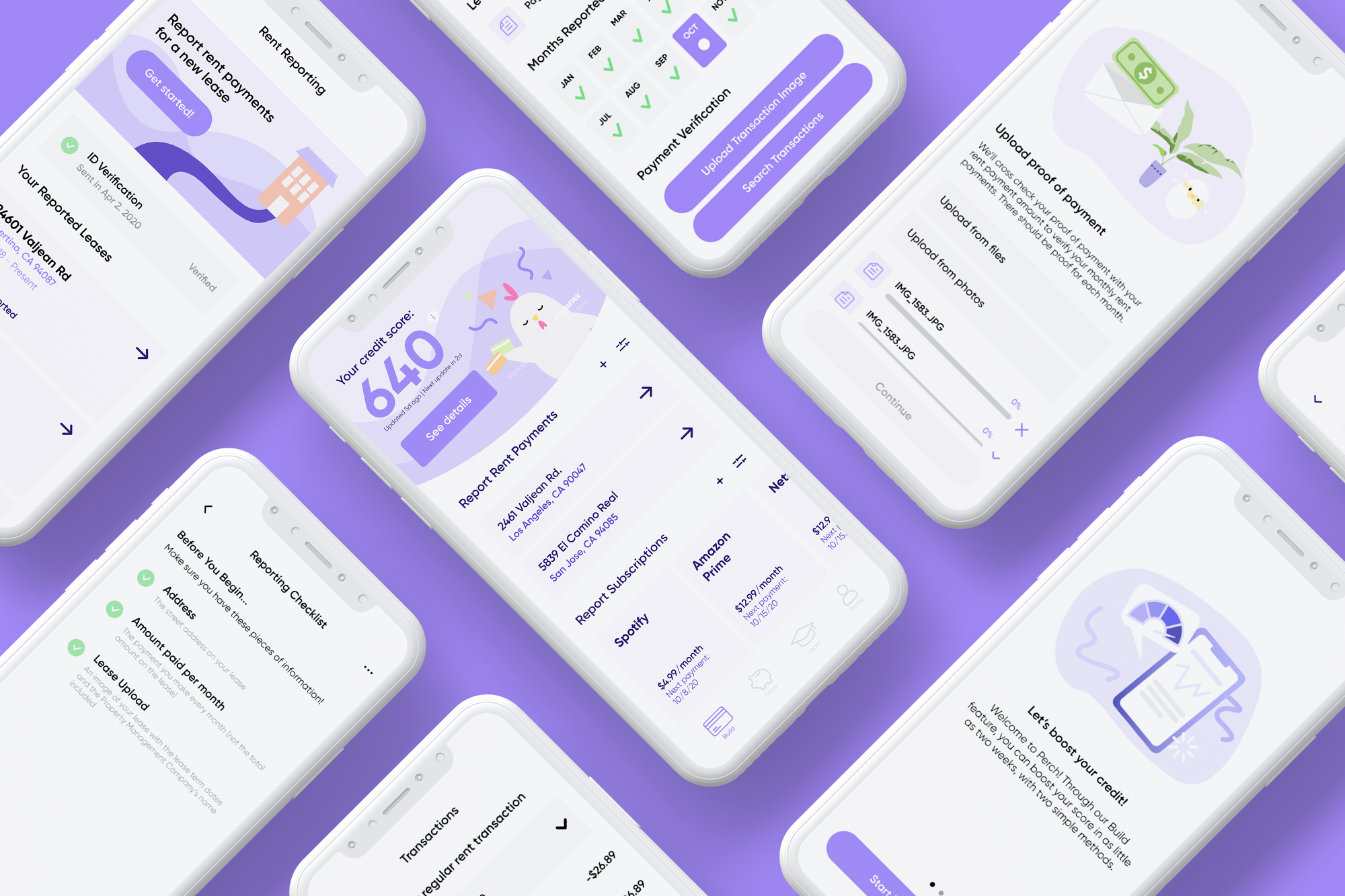As a founder, you’re juggling fifty-leven things at once and everything seems like a priority. Because of this, you often find yourself unfocused, all over the place, and not growing fast enough. In order to get focused and grow your business, you need to use your time and resources better, and create KPIs.
In this startup space, speed and growth is the way to play the game. Quantifying your startup's performance through KPIs will help you better assess your progress, and level up in your business.
Hold up! What's a KPI?
In business, KPIs (key performance indicators) are measurable values or metrics that you track to determine how effectively your company is moving along.
Businesses use KPIs to help their team members focus on achieving a common goal. It helps them understand whether they’re spending their time, money, and resources on the right things (because as a founder, who has money and time to waste?).

Examples of common KPIs
A KPI can be anything from website traffic, monthly recurring revenue (MRR), app downloads, social media impressions, and the list goes on.
When should you start setting and tracking KPIs?
Setting and tracking KPIs should be done in the very early stages of your business. Unfortunately, KPIs are unknown to many founders so it’s often missed.
For example with Michael Broughton, the founder of Altro, he didn’t start creating KPIs until after he raised his first round of startup funding. However once he started setting KPIs, it helped him move faster and execute in his biz - which later led him to raising over $20 million from VCs.
Who is Michael Broughton and what is Altro?
Altro, formerly known as Perch Credit, is a mobile app that allows people to build credit using their common reoccurring expenses like Netflix, Hulu, Spotify, their rent, etc. Using those expenses, Altro takes those data points and turns them into creditworthy payments.
The idea for Altro came to Michael after he got accepted into USC but was $10K short on his tuition. Michael came from a pretty low income family, a family of nine, and was the first in his family to go to college. He didn’t know anything about credit, and kept getting denied everywhere for his first loan.
He eventually made it to USC, but this experience really showed him this issue of access to credit for millions of Americans in the U.S. from disadvantaged and BIPOC communities. This inspired him to launch Altro alongside his co-founder Ayush Jain.

Since founding Altro, they’ve raised over $20 million dollars, and have received funding from Y Combinator, Citigroup, Concrete Capital, and Jay-Z’s Marcy Venture Partners. They’ve also grown tremendously and Michael credits this growth to properly setting and tracking KPIs.

Recently, we chatted with Michael and learned about his experience setting KPIs and his tips for early-stage startup founders on doing the same.
What were some of the early KPIs that you set?
We had three main ones once we went from literally having no money to the 3 million that we raised. One was getting on the app store because being able to be in everyone's pocket is a huge plus. We're currently live on the app store so that’s a major win for us.
The second one was being able to build people's credit using common expenses. We did a lot of research into what everyone pays, like a Netflix or rent bill, and figured out how can we adjust that into the app.
The last thing was building a team to actually execute on our goals.
We had a KPI this year to help 100,000 people build their credit. Fortunately we were able to do this in Q1 alone, which was insane, but it’s validation around the KPIs that we had set.

When did you create KPIs for Altro?
It wasn’t until maybe five or six months into actually raising our first round that we set our first ever KPI which was launching the app.
After raising venture capital, we were running around like chickens with our head off. It was a lot going on. We had a bunch of money, the team was growing, and there was so much to do that it was hard for us to focus on what could really move the company forward.
Setting KPIs really helped us move and execute.
For instance, getting on the app store was a huge achievement for us. It took us months of really going through, revising the app, and making it perfect. Having everyone focus on that goal first allowed us to execute fast versus working on multiple, different things.
How often should KPIs be measured or reviewed?
At Altro, we actually go on this timeline where you have high-level, mid-level, and low-level execution. High-level is like the yearly goal. What do we want to do and accomplish from January to December?
From there, mid-level is how we accomplish things each quarter.
Lastly, low-level, breaks down what we are doing week by week to actually hit the monthly goals that’ll lead to meeting the quarterly goals, which will lead to the yearly ones.
A perfect example is getting to 100,000 users.

At the beginning of the year, we said we wanted to help 100,000 people. The next step was to figure out how to make it happen in each quarter. Thankfully, this KPI has been hit already in Q1 so we’re in a weird situation because it's out of date. But nonetheless, we said in our first quarter we're going to focus on stability, make sure our app is defined, that the product works, and that we get super users.
The next goal after stability is scaling it. How do we get this product into multiple hands without having to be so granular and doing non scalable practices to get people onto the app. From there, we needed to figure out how to put money and capital into the growth of the business.
Lastly, focusing on new opportunities and new avenues is next. Figuring out what things we missed in the first three quarters that we can really execute in the last quarter is key. Doing this and planning for it really puts us in that KPI mindset, helps the team, and helps us see our North Star.
What were some things you all did before you could properly create your KPIs?
Understanding the entire product and having champions that can really help was extremely vital. I’m not the technical founder of our company but I do get into the weeds into how we built the company. However, looking into how we can actually get on the app store, it wasn't an answer that I could accurately present. So when I would say to my team, ‘Okay in 30 days we need to be in the app store,’ my tech team would say, 'hey but, there's a billion things that Apple requires that we have to focus on first.'
That mix in alignment really made us continuously miss deadlines.
What we had to do was set champions in the company. We had someone dedicated to the front end, and someone dedicated to the backend who could say, with those requirements that we have, this is how long it will take us to execute X. Now with me having those details, I realized that we could do it in 60 days and not 30, and that became our new sprint.
It’s small things like that that can help. It’s important to create champions, sprints, and roadmaps for your team. It'll keep you aligned and focused.

What are some common reasons why KPIs fail?
As a CEO, my job is to have a vision of what success looks like, and to figure out what our company looks like when we have 100 users and scale to 100,000 users. I should be able to see what we need to do to get there, and what should be executed day to day.
As a founder, you can be so focused and fixated on a specific goal, like for us we wanted to get to 100,000 people, that you miss the road to 100 people. I think for founders, you should start by telling yourself what that yearly goal is, but also get the levels in place (high, mid, and low levels). You should know that you are responsible for the high level, your superstars in the company are responsible for the middle level, and your team is responsible for the low level execution. As a founder, you have to make sure you have that charted out, and that your team is meeting on a weekly basis about it. You can’t just tell them we need 100,000 users, walk away, and let time pass on.
However, this is a mistake that a lot of founders make, and it’s because they struggle with mental organization.
As a founder, your mental organization is so important. There's a billion things happening in your company and there’s always something new to do. Because of this, focus is extremely important.
Just a few weeks ago, I had my hands in nine different things because we had this upcoming sprint that we needed to hit. I realize now that by trying to be in nine different things, I was putting 10% into each of these events rather than putting 100% into one of them and getting it completed. By the end of the sprint, I had nine things at 50%, instead of something at 100%.
For founders, in terms of your mental organization, focus on one thing at a time and ignore everything else because it's better to have something at 100% and not at 50%.

For new founders, what are important metrics to measure?
One thing that I think makes a major difference when you're talking to investors or anyone else interested in your company is how many super users you have.
Super users are people who you can call, email, or text. They're always talking to you or messaging you. They are okay with the bugs, because they're so invested in what you're trying to do that it doesn't matter.
Super users is a metric a lot of people don't really measure. For the most part, a lot of founders are more concerned with how long are people staying on the app or the site, the retention rate, or the revenue.
What really matters at the end of the day, and this is something that YC taught me, is can you get someone to fall in love with your purpose? Can you get someone to go through a very shaky v1, a version of your product that doesn't really work, be completely okay with it, and give you feedback on what they want out of the product?
When you find a user like that, not only does it prove there's a market for what you're building, but it also allows you to iterate quicker and faster than you normally would.
We have a number of super users that I talk to a lot - they’ll text or email me, and they all have my personal number. Those super users are really the most critical aspects to an early stage startup more than anything else. Finding super users is a metric you should be focused on in the beginning.

For example, when we launched on the app store, we only had a few downloads each week, but when those users downloaded the app, we reached out to each of them. We would say hi, and figure out why they decided to download the app. Doing this, we started collecting stories and learned a lot about our users. When you get those first couple people on your app or site, it’s easy to feel like 'oh it’s just a small number.' However, those 1, 2, and 3 downloads means so much more than the hundreds of people.
One thing that YC taught me is that an investor is more likely to write a check for someone with 100 super users than someone with 10,000 normal users. If you can get 100 people to consistently care about your app, give feedback, and really show that they love your product, that’ll be 10 times more intriguing than having the big numbers.

Can you share an example of a good KPI you had set, and then one that was not so good?
Launching on the app store was a KPI that wasn't the best because I didn't listen to my team, and didn’t get champions to help set sprints. A KPI that we set that did really well was getting to 100,000 users.
Outside of that, there are tons of other examples, failures, and opportunities we've had. They all come down to the same thing, and that’s are you listening to your team, are you setting sprints, and are you thinking in years, quarters, and weeks? From there, is your team really hitting those weekly metrics?
Think about it.
If the weekly goals aren’t being hit, then you aren’t meeting your monthly goals, and then the yearly ones are getting met either.
By being focused and properly goal-setting, it allows you to work backwards into that yearly goal, and allows you to really define success in very short, consecutive steps.


